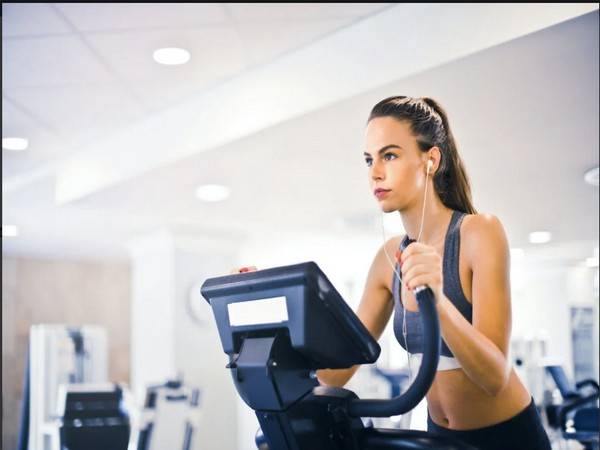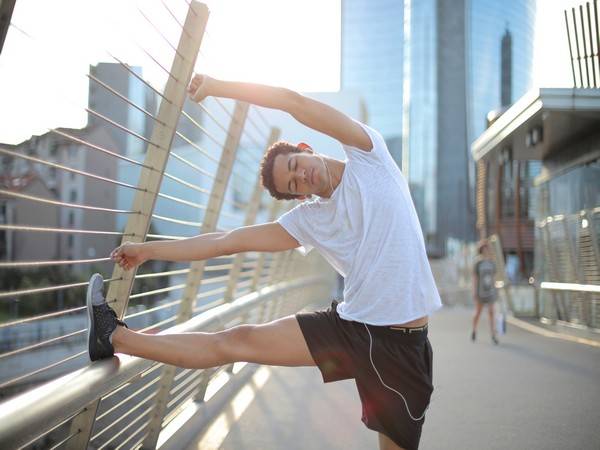
Before moving on to the next exercise, perform each for 40 to 60 seconds. Between each exercise, take a 20 to 30 second break to allow your body to recuperate…writes Mujtaba Kamal
If you want to build strength but do not have access to weights, all you need is a solid training regimen and some room to work out. Building strength and endurance using bodyweight exercises is another effective technique to engage in resistance training.
Here are five exercises that will engage your entire body while concentrating on the four main components of fitness: strength, mobility, activation, and stability. These five exercises target the lower body, core, and upper body. The skeleton of your body is supported by your shoulders, torso, and hips. Regularly performing these exercises can help you build strength while also enhancing your movement. Perform these exercises for a longer period of time to complete a workout, or even for a shorter period of time to warm up before your next exercise session. You might perform a routine known as a “Pillar Prep” by combining these exercises.
Before moving on to the next exercise, perform each for 40 to 60 seconds. Between each exercise, take a 20 to 30 second break to allow your body to recuperate.

High plank arm reach
This is a fantastic exercise to work every muscle in your body! It has anti-rotational effects and works the shoulders and core. Additionally, it honed your body’s stability and balance. By extending the plank, this exercise also strengthens the core.
How to perform:
First, we get into a High Plank: Palms under the shoulders, body aligned in a straight line from shoulders to ankles
Ensure your core is engaged: Squeeze the trunk area close to the spine.
Alternate arms are raised slowly, till the shoulder is close to the ear.
Try and avoid swinging the body and the hips while alternating the hands
Bent over T Spine Rotation
This motion enhances the hip hinge and enables a unique focus on the thoracic spine. Injury risk is decreased while mobility and posture are improved. It’s a fantastic warm-up exercise to incorporate into your exercises, too!
How to perform:
Keeping the knees soft, hinge from the hips.
Maintain a neutral spine and keep the chest lifted.
Once in the bent-over position, extend your arms towards your feet.
Keeping your hips facing down, laterally raise one arm, open the chest up the same side, the working arm reaching towards the ceiling with fingertips pointing up.
Slowly lower down and repeat on the other side.
When at the topmost position, try and ensure both palms are in the same line, keep opening the chest out, and feel that work on the t-spine.
Hollow hold
A fantastic method to make sure that your entire body is engaged and to really push those muscles is to perform an isometric exercise. The spine is stabilised and the deepest core muscles are strengthened by a hollow hold. This exercise engages all of the anterior chain muscles, including your obliques, hip flexors, and quads, in addition to strengthening your core.
How to perform:
Lying on your back, press the lower back firmly onto the mat.
Extend your arms up with the shoulders in line with your ears
Keep your feet together, toes pointed and lift your legs off the floor
Your arms,shoulders, legs and feet are off the floor, with your lower back pressed firmly down on the ground, creating the hollow position.
Pulse Squat
An useful exercise that engages the glutes, quadriceps, and hamstrings—the three main muscles in your lower body. Due to the continual engagement and tension in the muscles during this activity, more calories are burned as well as more muscle is gained.
How to perform:
Stand with your feet shoulder-width apart, with your toes slightly pointing out.
Initiate the movement from the hips, push back and lower down keeping your chest up and back straight.
Sink down till your thighs are parallel to the floor and ensure your core is engaged at the squat position.
Come up halfway, without fully extending the knees or the hips, then lower back down to the squat position.
Repeat this up and down movement, or pulses, for time or reps as you see fit.
Hip opener to hip extension
Focusing on hip mobility is crucial if you want to perform your other exercises and lifts correctly and have a wide range of motion. This exercise combines two others that target hip flexibility and range of motion.

How to perform:
Sit with your knees bent and your toes pointing towards the ceiling.
You can use support by placing your hands under your shoulders next to your hips.
Drop both the knees to one side touching the floor, where the front heel and back knee are close together.
Try not to lift your hips up while you do this
Your torso and shoulders still facing forward, feel the hips open out.
From here, hoist yourself up onto your knees, push your hips forward and squeeze your glutes.
Return to the seated position and repeat on the other side.
(Mujtaba Kamal, Fitness expert, Cult.fit)
ALSO READ-Long way to healthy life


